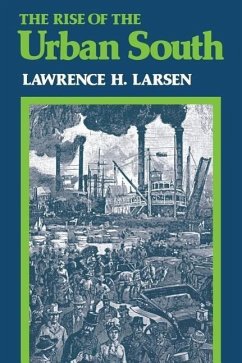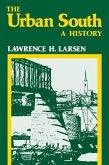Operating under an outmoded system of urban development and faced by the vicissitudes of the Civil War and Reconstruction, southerners in the nineteenth century built a network of cities that met the needs of their society. In this pioneering exploration of that intricate story, Lawrence H. Larsen shows that in the antebellum period, southern entrepreneurs built cities in layers to facilitate the movement of cotton. First came the colonial cities, followed by those of the piedmont, the New West, the Gulf Coast, and the interior. By the Civil War, cotton could move by a combination of road, rail, and river through a network of cities - for example, from Jackson to Memphis to New Orleans to Europe. In the Gilded Age, building on past practices, the South continued to make urban gains. Men like Henry Grady of Atlanta and Henry Watterson of Louisville used broader regional objectives to promote their own cities. Grady successfully sold Atlanta, one of the most southern of cities demographically, as a city with a northern outlook; Watterson tied Louisville to national goals in railroad building. The New South movement did not succeed in bringing the region to parity with the rest of the nation, yet the South continued to rise along older lines. By 1900, far from being a failure in terms of the general course of American development, the South had created an urban system suited to its needs, while avoiding the promotional frenzy that characterized the building of cities in the North.Based upon federal and local sources, this book will become the standard work on nineteenth-century southern urbanization, a subject too long unexplored.








